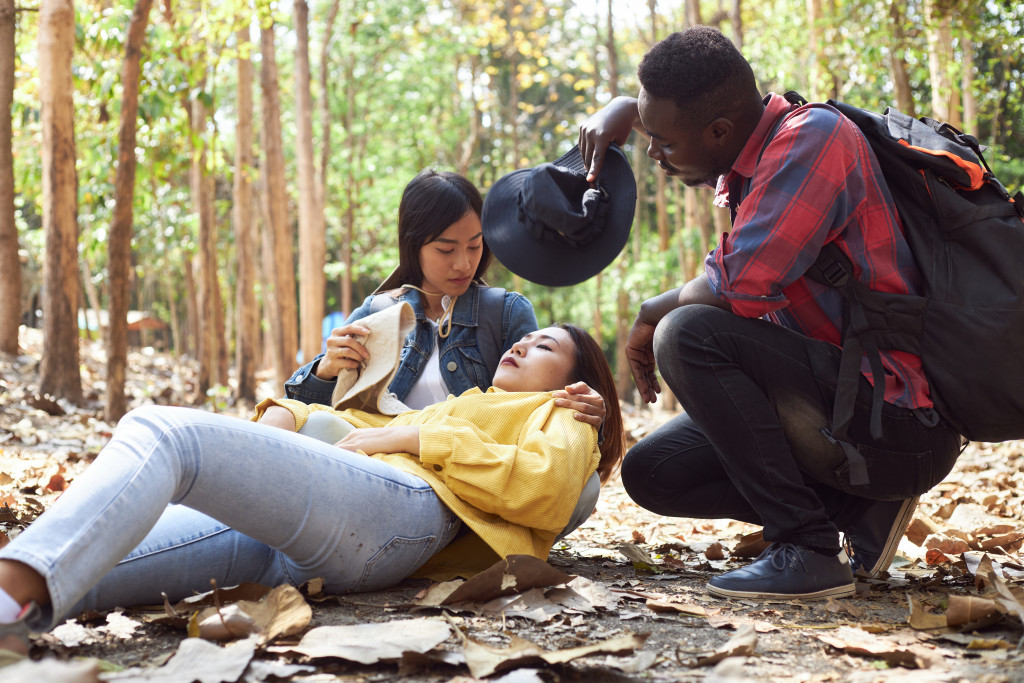Traveling can be an amazing experience. It broadens your horizons, exposes you to new cultures, and allows you to see the world in a whole new way. However, it’s important to remember that travel can also be dangerous. Whether you’re going on a short weekend getaway or a months-long backpacking trip, it’s crucial to know what to do in case of an emergency or injury.
What to do if You Have an Emergency or Injury While Traveling
If you find yourself in an emergency while traveling, you should first contact your embassy or consulate. The staff at your embassy or consulate can help you with everything from finding a doctor to getting in touch with your family back home.
If you cannot contact your embassy or consulate, your next best option is to go to the nearest hospital or medical clinic. Be sure to bring your passport with you, as you’ll likely need it to receive treatment. In some cases, it may not be safe or possible to go to a hospital or medical clinic. You can contact a local doctor or nurse for help in these situations.
If you’re injured while traveling, your priority should be getting medical attention. Depending on the severity of your injury, this may mean going to a hospital, clinic, or doctor’s office. If possible, try to find a facility accredited by the Joint Commission International (JCI). JCI-accredited facilities meet high standards for patient safety and quality of care, so you can be sure you’re getting the best possible treatment.
Always Have Your Documents with You
Once you’re receiving medical attention, you can do a few other things to stay safe while traveling. First, make sure you have travel insurance. Travel insurance will help cover the cost of your medical treatment and may also assist in getting you back home if necessary. Second, keep all of your important documents (passport, airline tickets, etc.) in a safe place.
If you’re hospitalized, you’ll want to ensure your documents are easily accessible so that someone can help you get home if needed. Finally, stay in touch with your family and friends. Let them know where you are and how you’re doing. This will help them feel more connected to you and can also be helpful in case of an emergency.

Get Ready for a Prolonged Stay in Medical Care
If you need medical care while traveling, it’s important to be prepared for a prolonged stay. This may mean staying in the hospital for several days or weeks or being evacuated to another country for treatment. Either way, you’ll want to ensure you have enough money to cover your medical expenses. It would help if you also planned to get home once you’re discharged from the hospital.
Check to see what your policy covers. Some policies will cover the cost of your medical treatment and evacuation, while others will only cover a portion. You’ll also want to make sure you have a way to pay for any expenses that your policy doesn’t cover. If you need access to integrative healthcare, ensure you find a specialist that is covered under your policy. They should work together to make a plan that meets your needs and budget, make you feel as comfortable, and make the healing process as smooth as possible.
First Aid
Here are some tips on how to handle common injuries while miles away from home:
- If you have a minor injury, such as a cut or scrape, wash the wound with soap and water. Apply pressure if the bleeding is constant. If the bleeding is heavy or doesn’t stop after a few minutes, seek medical help.
- If you have a more serious injury, such as a broken bone or head injury, call for medical help right away. Don’t try to move the person unless they are in danger of further injury (for example, if they are in the middle of the street).
- If someone has a seizure, stay calm and don’t try to restrain them. Clear away any objects they could hurt themselves, and time the seizure. If the seizure lasts more than five minutes, call for medical help.
- If someone is choking, encourage them to cough and breathe deeply. If they can’t speak or breathe, perform the Heimlich maneuver by standing behind them and giving quick abdominal thrusts until the object is dislodged. If they lose consciousness, call for medical help right away.
In Summary
When you’re traveling, it’s important to be prepared for anything. That means knowing what to do in case of an emergency or injury. By being prepared and knowing what to do in case of an emergency, you can help ensure that your trip is safe and enjoyable.

